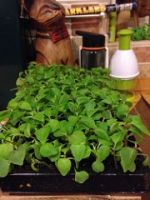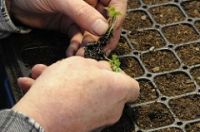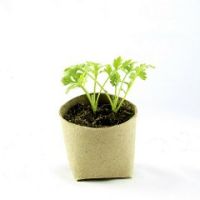What To Look Out For When Choosing Plug Plants
While it is usually better to grow your own plants from seed, or to propagate your own cuttings, plug plants can sometimes be welcome in order to improve the look of your garden without a lengthy wait. Here are some tips on what you should be considering and looking out for when you are choosing  your plug plants:
your plug plants:
Healthy Growth
Often, it is easy to see whether or not a plant is getting the nutrients and care that it requires simply by looking at the state of the growing stems and leaves. When choosing plug plants in the spring, look out for the signs of strong new growth. Avoid any plants that are too leggy, weak looking, or which look less than their best.
 Good Root Formation
Good Root Formation
When choosing plug plants, it is always a good idea to gently ease the plant out of its pot to take a look at the roots. You want to check that there are signs of good root formation visible in the base of the pot, but also that the plant's roots are not pot bound. Make sure the soil in the plug is moist but not waterlogged. If it is, you can see for yourself that the plant has enjoyed a good start in life.
Pests & Disease
While examining the pots and plants, keep your eyes peeled for any signs of pests or diseases. Plug plants that are not healthy, or which carry pests, could infect the rest of your garden, which is the last thing that you want. If in doubt, leave the plug plants where they are and don't risk spreading pests or disease to your own growing areas.
 Biodegradable Pots
Biodegradable Pots
Though not essential, you may also like to consider choosing plug plants which come in biodegradable pots rather than in plastic ones. Plastic is a problem and individuals looking to live a more green and sustainable way of life would do best to limit the amount of it that they bring into their homes and gardens.
Organic Plants?
Another thing to consider is that, from a green and sustainable perspective, it would be best to choose plug plants that have been grown organically. Organic gardening is a key part of a sustainable way of gardening. Especially with edible plants, organically grown examples are healthier for you too – better for your own health as well as that of the planet.